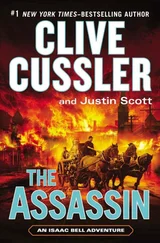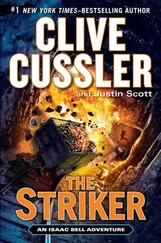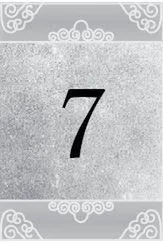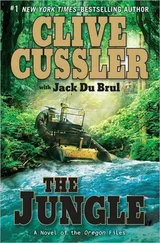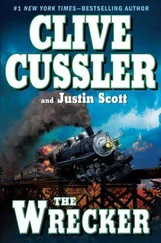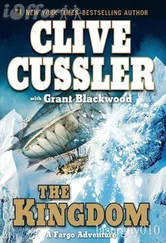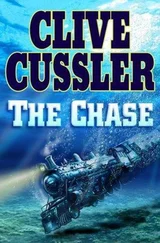“What?” Reuter turned. His mouth tightened when he realized that the man who had been sitting next to him all along was Arthur Curtis. “I said, no more.”
“I can now pay triple,” whispered Curtis. “Three times as much. If you’re interested, meet me in the bar.”
Reuter kept him waiting, but not for long. Greed, in the immortal words of Chief Investigator Isaac Bell, worked wonders.
“Triple?” Reuter echoed in disbelief.
Arthur Curtis passed him the fresh Topp he had ordered and took a sip from his own. “Triple. But only for something special.”
“Like what?”
“Something unique. You know the situation at your employer. You’re best qualified to suggest something that I would really need. Aren’t you?”
Hans Reuter looked worried. “But how am I to guess?”
Curtis shrugged. “Let me guess for you. How many Krieg company executives and directors are former Army officers?”
“Very few.”
“Do you know any?”
“Not personally. I mean, there are none in the Berlin office.”
“Can you find their names?”
“I would have to think about that.”
“While you’re thinking,” Curtis shot back, “think which of those company directors might travel abroad.”
Reuter looked uncomfortable, and Curtis thought he was touching some sort of a nerve here, as if the man had thought of a name he feared.
“One of your responsibilities is to dispense funds overseas, correct?”
“How do you know?”
Curtis’s casual, “I asked around” did not make Reuter look any more comfortable.
Curtis went for broke. “I need a name.”
“A name?”
“The name of the recipient.” Push! Arthur Curtis thought. Push him hard. Don’t give him time to change his mind. “Two days,” he said. “Meet me here. Seven o’clock.”
“It is risky.”
“Don’t worry, it will be the last time I ask.”
“No more?” Hans asked, partly with relief, partly with disappointment that the money would stop. Curtis said, “In addition to triple, I will seek authorization for a separation bonus. A thank-you.”
Greed was Reuter’s middle name. Suddenly he was brave. “But for the name you ask I will have to pay someone else.”
He was lying, bless him, Curtis thought. Reuter was high enough up in Krieg to know the name himself. Curtis said, “O.K. If I must, I will pay your ‘someone else,’ too.” Maybe Reuter was lying. But maybe he wasn’t. Hopefully, he was so grasping he would take a big risk.
On his way back to the office, Art Curtis stopped at the all-night telegraph in a railroad station to cable Isaac Bell.
WIRE AUTHORIZED FUNDS.
NAME POSSIBLE TWO DAYS.
* * *
Andrew Rubenoff reported back to Isaac Bell that he was very impressed by Irina Viorets.
“I’m surprised,” Bell admitted. “I thought there was something fishy about how fast she got the job running such a big outfit.”
“The woman displays a keen understanding of the moving picture business. Not only the taking of the pictures, but the distribution and exhibition — which are absolutely vital to making a profit. Equally important, she understands that more must be done than introducing a couple of new shows with each change. The customers won’t stand much longer for furbishing up of the exhibition with a few new features. The exhibitors must be able to declare that the entire show is new. ‘Keep your show fresh and up-to-the-minute,’ she told me, ‘and you will draw full houses.’”
“Sounds like she was selling you.”
“I pretended to be an exhibitor with a string of picture show shops in Indiana.”
“That was a nice touch,” Bell said admiringly.
“Not really,” Rubenoff replied with a modest smile. “I control houses in Detroit, Toledo, Battle Creek, and Indianapolis.”
“So you think she passes muster?”
“There are poseurs in this line who like to say that anyone can make a moving picture. That is not true, as Mr. Thomas Edison is slowly beginning to learn at great expense. Similarly, not just anyone can distribute movies. Mademoiselle Viorets knows her business. Most important, she knows the future of the business.”
“You didn’t fall for her, Uncle Andy, did you?”
“It is in my makeup,” Rubenoff replied, enigmatically, “to be capable of admiring a beautiful woman without desiring her.”
“How did Irina learn so much about the future of the business?”
“Apparently she made one-reelers in Russia. Much as your bride does when she is not shooting her Picture World newsreels for the ghastly Whiteway.”
“But how did a Russian moving picture director learn about distribution and exhibition?”
Rubenoff smiled. “You’re your father’s son, young Isaac. Always to the core.” Then he turned very serious, and Isaac Bell was reminded that Rubenoff had earned several fortunes since landing as an immigrant and appeared to be on the road to another. “It seems to me that Irina Viorets learned about distribution and exhibition by listening carefully to someone who has manipulated a modern corporation to control the entire chain of production and marketing from top to bottom.”
“Like who?”
“Andrew Carnegie pretty much invented modern vertical integration.”
“Assuming the young lady did not sit on the old philanthropist’s knee, who else? Any Germans?”
“Germans? Krupp has pretty much written the book on German vertical integration.”
“What about Krieg Rüstungswerk?”
“If not quite so large as Krupp, Krieg is better connected in the kaiser’s circle. But wherever the lady absorbed her ideas, she has a clear understanding that the future of moving pictures belongs to those who control every aspect, from hiring actors to projecting the finished product in the theater — only then can we guarantee a place to see our product, and a product to see in our place.”
“Sounds like you’re working at vertical integration, too, Uncle Andy.”
“From your lips to God’s ear, young Isaac. But don’t go blabbing it about.”
“Will you keep digging into who’s behind her?”
“I’ve already begun inquiries,” Rubenoff replied.
* * *
“Quiet as a church,” the Van Dorn Protective Services operatives reported whenever Bell dropped by the Imperial Building laboratory where Clyde Lynds was hard at work. “He’s at it from breakfast to supper, and sometimes half the night. The man works hard as a nailer.”
“Have you seen anyone hanging around?”
“No. It’s just him and us and Clyde’s helpers — and you know we looked at them real close.”
“No shadows on the way home?”
“No, sir, Mr. Bell. None coming in either. And the boys watching the house haven’t seen a soul who looked like trouble. Do you think maybe they just gave up and packed it in?”
“I would be very surprised,” said Bell. “Keep on your toes. And remember, the hardest part of guarding a fellow is that the attack can come anytime, night or day.”
Privately, however, Bell had to wonder. Had Krieg given up? Or were they laying back, reasoning that once he was set up in a laboratory, Clyde Lynds wasn’t going anywhere until he had finished the machine, in which event they had him just where they wanted him?

Joseph Van Dorn arrived on the train, unexpectedly.
Isaac Bell saw by his expression that the boss doubted that his chief investigator was on the right course, although Van Dorn’s opening salvo was uncharacteristically mild and somewhat oblique.
Читать дальше




